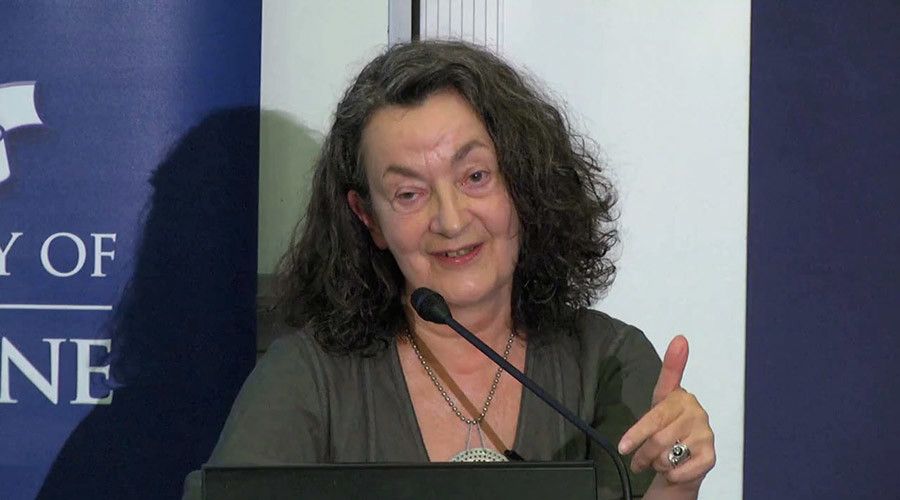Jo Labanyi on Spanish Fascism

Professor Jo Labanyi inaugurates “The Emergency Lectures: Public Scholarship on Power, Culture, and Resistance” with a lecture on “The Political Uses of Emotion: What Can We Learn from Spanish Fascism?”
Jo Labanyi is Professor of Spanish at New York University. Founding editor of the Journal of Spanish Cultural Studies, she is also in charge of the edition of the series Remapping Cultural History. Her research career is a true reference in relation to Spanish cultural studies because in addition to being a pioneer in the development of this methodology, her publications are a model of historical rigor and complex cultural analysis, while showing a suggestive theoretical innovation. In 1995, with the Helen Graham Spanish Cultural Studies, she edited a compilation that is considered a bibliographical landmark, along with Constructing Identity in Contemporary Spain. Theoretical Debates and Cultural Practice, edited in 2002.
She has also been interested in cinema, especially the first Francoism and she has shown a renewed methodological approach, studying issues quite neglected by the historiography of Spanish cinema, such as the importance of clothing. She has directed research projects, providing a history of the practice and reception of cinema during the Franco regime, An oral history of cinema-going in 1940s and 1950s Spain (Arts and Humanities Research Board).
She has also been interested in the issue of memory, especially in relation to the Spanish civil war, one of her key publications being the coordination of the space issue of the Journal of Spanish Cultural Studies entitled The Politics of Memory in Contemporary Spain (2008).
The Emergency Lectures: Public Scholarship on Power, Culture, and Resistance
This series offers public scholarship in an Emergency, presenting thinkers and writers from the NYU intellectual community whose work has an urgent bearing on the present. These experts will present historical and contemporary case studies that can help us to comprehend our political moment and think together, beyond the sense of alarm and anxiety that emergencies provoke. Reflecting on Fascist Europe, authoritarian Argentina, medieval Arab Spain, the Mediterranean, the Global South, the Caribbean, and the United States, the talks will offer historical contexts for the civil and humanitarian emergencies of the present, and provoke conversations that foster our capacity for informed engagement and response.
With deep contexts, these lessons in cultural history help us ask: What do we need to know in an emergency? How is this emergency related to the past and how is it particular to the present? What do we need to learn and remember in moments of social fracture? How do we reason urgently? How can we learn differently? What emerges in an emergency?